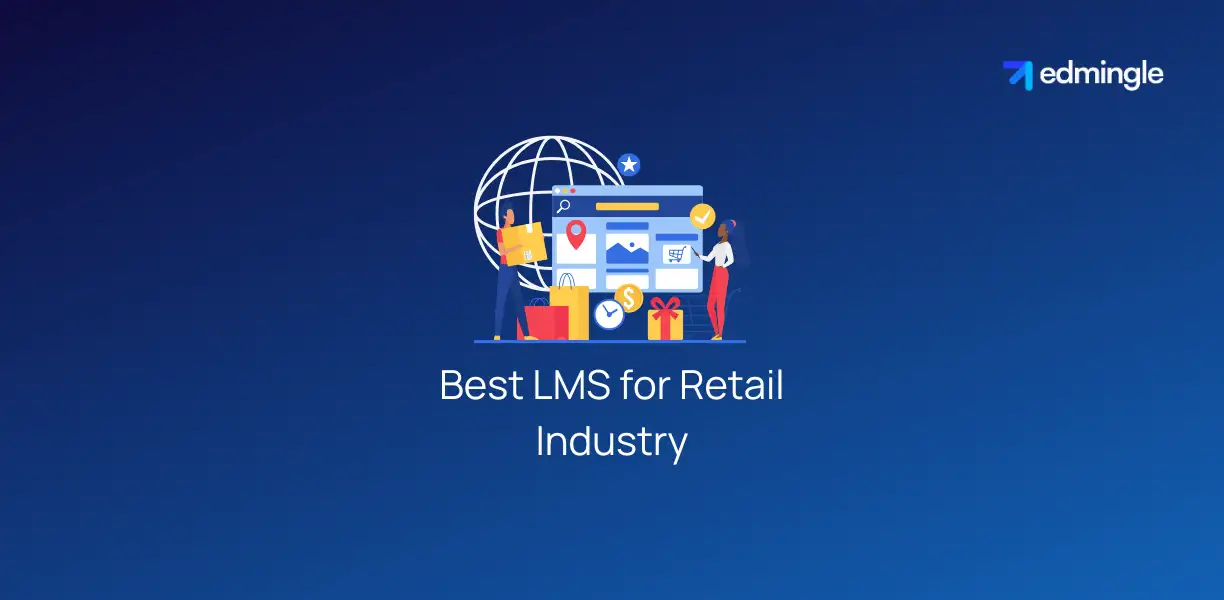
An LMS for retail industry helps onboard new hires & upskill high performing staff. Improving customer service, streamlining product training & boosting sales in the process. Enabling retail businesses to focus on customer satisfaction & revenue generation.
But that’s not it. In this article, we’ll explore the use cases & benefits of a retail LMS. With it’s key features & the 10 best LMS for retail industry training to help you make the right decision.
Use Cases of a Retail LMS
- Product & Service Training: Equip employees with in-depth knowledge about the products and services to enhance customer interactions
- Customer Service Excellence: Train staff on communication skills, conflict resolution, and sales techniques to improve customer satisfaction
- Compliance & Regulatory Training: Ensure adherence to industry standards, legal requirements, and internal policies
- Onboarding New Employees: Streamline the integration process for new hires with consistent, scalable training modules
- Sales and Upselling Techniques: Develop effective sales strategies and upselling methods to boost revenue
- Performance Tracking & Analytics: Monitor employee progress and training effectiveness through built-in analytics and reporting tools
Check out the most cost-effective LMS solutions for a budget-friendly purchase.
Benefits of an LMS for Retail Industry Training
- Easy training for large, distributed retail teams
- Delivers uniform training, ensuring standard customer service
- Reduces costs associated with in-person training, travel & printed materials
- Accelerates employee onboarding with structured, on-demand modules
- Enables 24/7 access to training for both in-store & remote staff
- Simplifies compliance training with auto updates & tracking
- Fast way to update staff on new products, promotions & sales techniques
- Enhances staff skills for better customer service & satisfaction
You might also like to explore about LMS for external training.
Key Features in a Retail LMS
- Mobile Accessibility: Seamless access to training anytime, anywhere on smartphones & tablets
- Microlearning Support: Short, focused training modules for quick learning and easy retention
- Compliance & Certification Management: Automated compliance tracking with certification issuance
- Real-Time Reporting & Analytics: Detailed insights into employee progress & training effectiveness
- Multilingual Support: Content delivery in multiple languages for a diverse retail workforce
- Blended Learning Capability: Seamless integration of online modules with in-person training sessions for maximum impact
- Product Knowledge Training Tools: Easy updates for new product launches & seasonal promotions
- Customizable Learning Journeys: Personalized retail training programs based on roles & performance
- Integration with HR & POS Systems: Smooth data exchange with HR platforms & POS (point-of-sale) systems
10 Best LMS for Retail Industry
Choosing the right LMS is essential for retail businesses. Mainly due to the quick change in customer expectations & rising competition. Below are the 10 best platforms tailored to meet these needs.
1.Edmingle
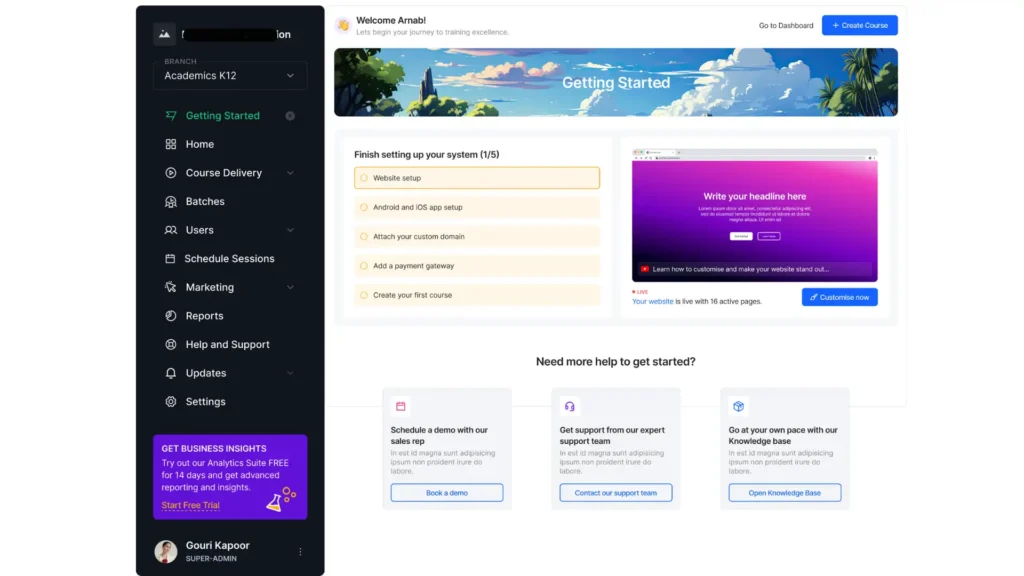
Edmingle provides a robust LMS designed for seamless training & learner management. Further levelling up the game with it’s AI-powered analytics, tracking & reporting. It’s following features make it one of the best contenders of retail solutions:
- Super easy to use, adopt and implement within a week
- 100% white-labelled mobile apps (Android & iOS)
- Real-time performance tracking & reporting
- Automation features to simplify aspects like onboarding, product training & compliance management
Pros:
- Multi-tenancy support with offline, online & hybrid training modules
- Exceptional customer support, available 24×7 via multiple channels
- AI-powered analytics on learners, courses & assessments with comprehensive reporting
Cons:
- The basic plan comes with 2.9% revenue sharing
Rating: 4.5 out of 5 on Capterra.
Want to watch up-close how it can help your retail organisation?
2.AcademyOcean LMS
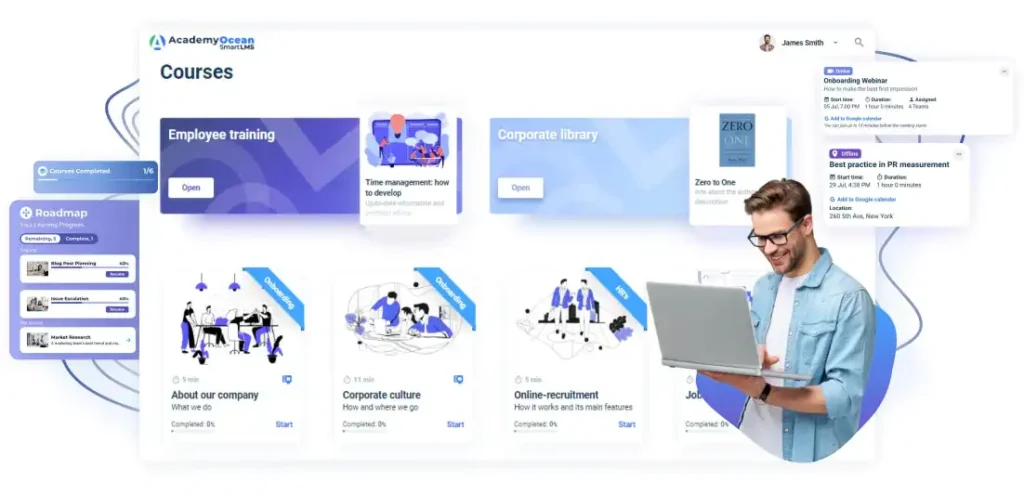
AcademyOcean LMS personalizes learning experiences with adaptive content delivery. It allows retail businesses to create engaging, interactive product training modules. With features like onboarding automation & microlearning support.
Pros:
- Responsive & helpful customer support
- End-to-end certification process can be handled directly from the app
Cons:
- Lack of integrations to automatically export leads to CRM or email marketing/sales acceleration tools
Rating: 4.9 out of 5 on Capterra.
3.Tenneo
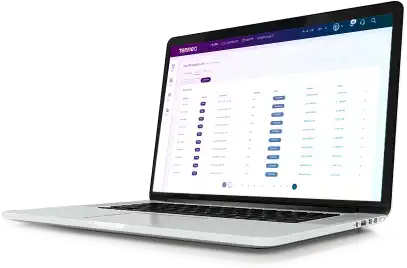
Tenneo (formerly G-Cube LMS) is known for its blended learning, gamification & multilingual support. Making it ideal for geographically distributed retail teams. It’s data-driven analytics help retailers measure employee performance & training impact effectively.
Pros:
- Good customer support with flexibility in customization
- Useful business intelligence tools
Cons:
- Some limitations on features, time-base reports and other reporting capabilities
- A little difficult to navigate
- Unsatisfactory issue resolution time for application related issues
Rating: 4.5 out of 5 on Capterra.
Read in-depth on blended learning.
4.The Learning Lab
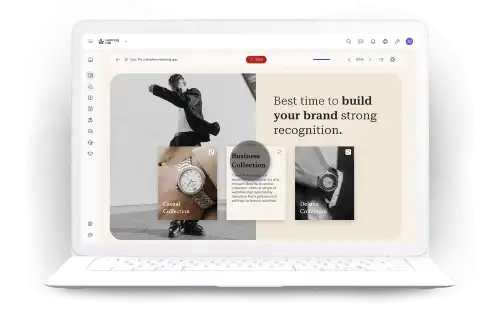
The Learning Lab provides custom high-quality training solutions designed for the retail sector. Its user-friendly platform supports interactive elements/content, mobile learning & real-time feedback. Emphasizing employee engagement through gamified learning & personalized development tracks.
Pros:
- Responsive & reliable authoring tool
- Good team, responsive to customer needs
- Quality training & support via video calls
Cons:
- Some of the gamification tools are slightly clunky
- A little learning curve to use the platform and create content from scratch
Rating: 4.9 out of 5 on Capterra.
5.Totara
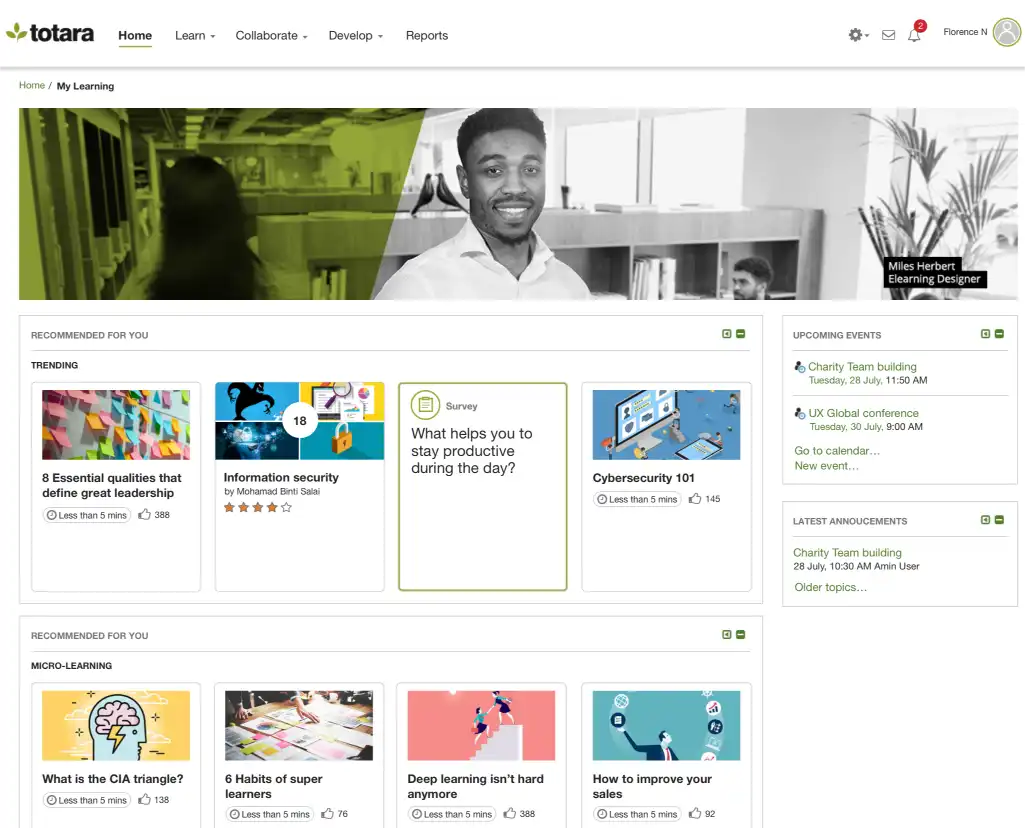
Totara is an open-source LMS offering high customization & scalability. It supports compliance training, performance management & blended learning. It’s flexible architecture makes it a cost-effective solution for large retail organizations.
Pros:
- Easy to navigate and use platform
- Good customer service
Cons:
- Unavailability of a central notification center
- Limitations on customization of some notifications
- Lack of detailed release notes/resources
Rating: 4.4 out of 5 on Capterra.
Explore about open source LMS platforms.
6.Docebo
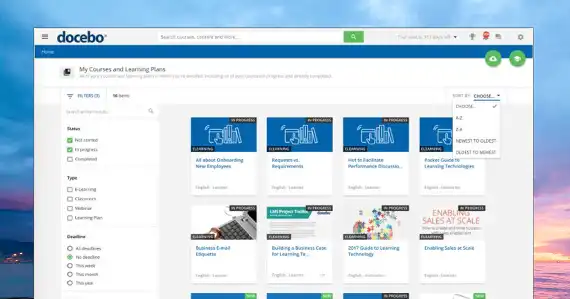
Docebo is a powerful AI-driven LMS with an intuitive interface. It’s social learning features & automated workflows make onboarding seamless. It’s advanced analytics provide valuable insights into online training effectiveness & employee engagement.
Pros:
- Easy to use & implement with a lot of options for personalization
- Good backup, migration, reporting & hierarchy management abilities
- Quick customer service with cool gamification elements
Cons:
- Response time can be frustrating
- The platform can be slow at times
- Limited admin options for staff
Rating: 4.4 out of 5 on Capterra.
You might also like to read about AI-powered LMS platforms.
7.EdApp LMS
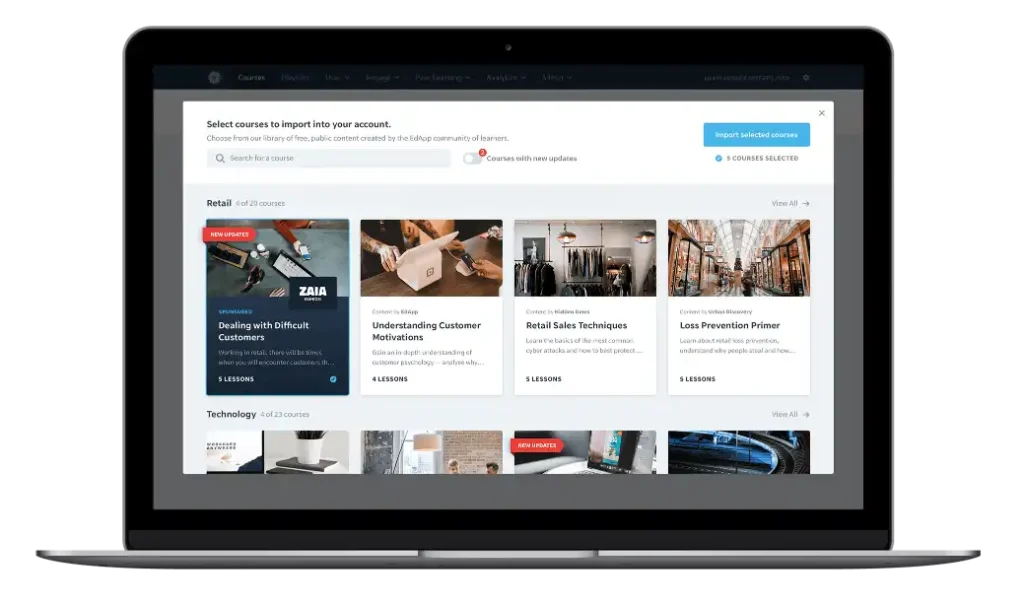
EdApp LMS offers a mobile-first microlearning approach. Ideal for frontline retail employees, it also offers gamification & real-time reporting. Its easy content updates & bite-sized learning modules are perfect for busy retail staff.
Pros:
- Wide range of engaging options for courses & content
- Helpful AI saves time and efforts
- Customizability of branding and content
- Easy sharability with learners
Cons:
- Formatting can be a little complex
- Setup of live lessons can be confusing
Rating: 5 out of 5 on Capterra.
8.D2L Brightspace
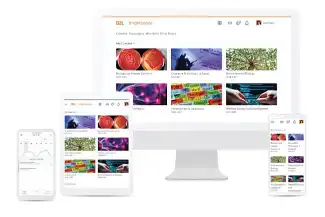
D2L Brightspace helps deliver a flexible & engaging learning experience. With personalized learning paths, multimedia content & advanced analytics. It’s scalable design suits both small & large retail operations.
Pros:
- Easy to navigate and customize
- Ability to record lectures with screen sharing and chat features
Cons:
- Frequent glitching problems
- Confusing UI/UX at places
Rating: 4.3 out of 5 on Capterra.
9.Bigtincan
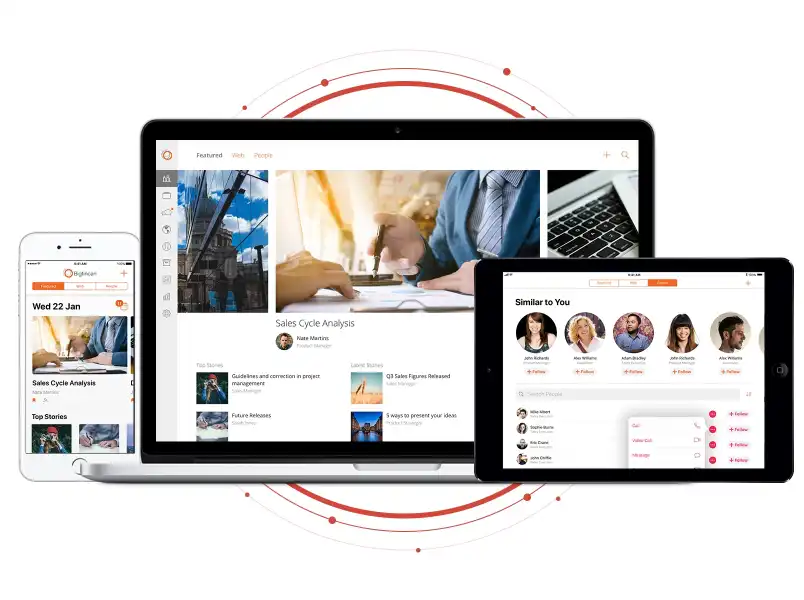
Bigtincan is a comprehensive learning & sales enablement platform. It streamlines product training & customer engagement strategies, all while improving sales performances. It also offers AI-driven content recommendations & mobile accessibility.
Pros:
- Good amount of resources
- Easy to follow & understand authoring format
- Plenty of features with easy implementation
Cons:
- Hidden advanced functionalities
- Needs an intuitive user interface
Rating: 4.3 out of 5 on G2.
Also read about LMS for sales training.
10.Axonify
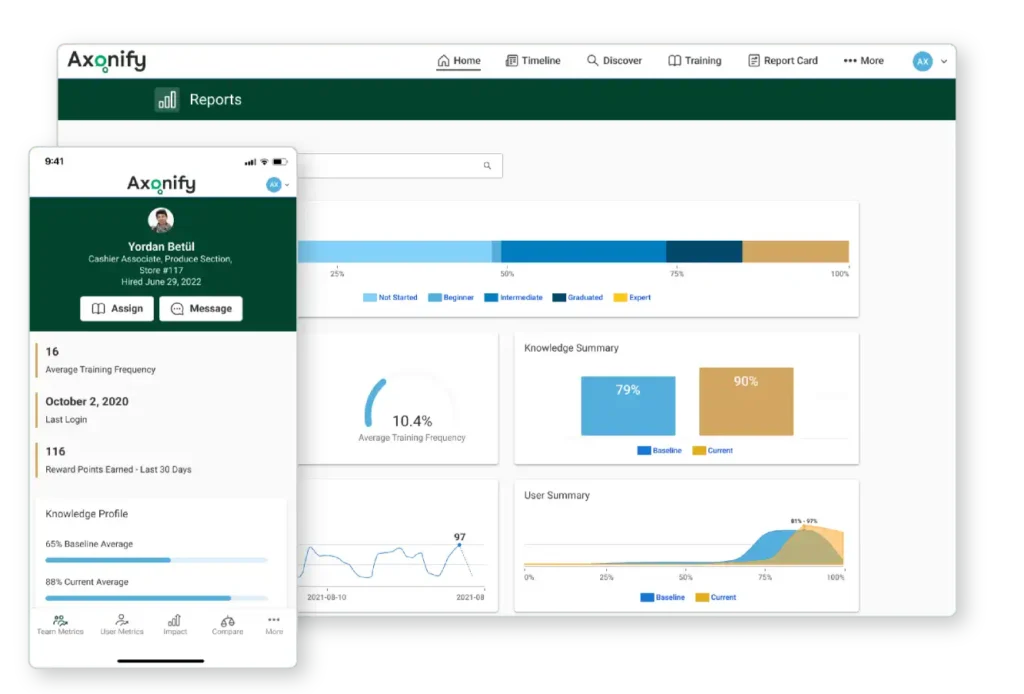
Axonify is a frontline-focused LMS. Built to improve employee knowledge & performance in retail. Its microlearning modules, gamification & adaptive learning paths help make training engaging & impactful. It’s real-time analytics empower retail managers to track progress & identify skill gaps effectively.
Pros:
- Dashboards provide personalized insights
- Gamification & learner engagement features
Cons:
- Tough to navigate at times
- Tracking is limited to export reporting
- Issues with user interface
- Inability to bulk upload content
Rating: 4.7 out of 5 on Capterra.
Summary on LMS for FMCG Training
A powerful LMS streamlines employee training & improves product knowledge. Ensuring consistent customer service across locations. All while reducing costs & boosting operational efficiency.
The right LMS can transform how your retail business operates. From AI-driven platforms like Edmingle & Docebo to microlearning-focused solutions like EdApp LMS & Axonify. Each platform offers unique features tailored to retail challenges.
Investing in a retail-specific LMS is all about empowering your team. To deliver exceptional customer experiences & drive long-term business growth.
FAQs on Retail Training LMS Platforms
1.How can an LMS improve retail sales performance?
By offering continuous product training, sales techniques & customer service modules. A retail learning management system helps keep retail staff informed & confident. Thus, leading to better customer interactions, increased upselling opportunities & higher sales conversions.
2.How does gamification in an LMS engage retail employees?
Gamification features like badges, leaderboards & quizzes make learning interactive & fun. Boosting employee engagement, motivation & knowledge retention. Leading to better performance on the shop floor.
3.Can small retail businesses benefit from using an LMS?
Absolutely! Many LMS platforms offer scalable infra & affordable pricing. Designed for small & medium-sized retail businesses to train their staff without heavy investment.



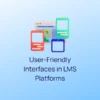
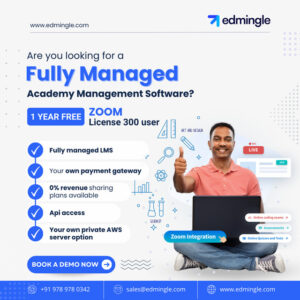
Leave a Reply